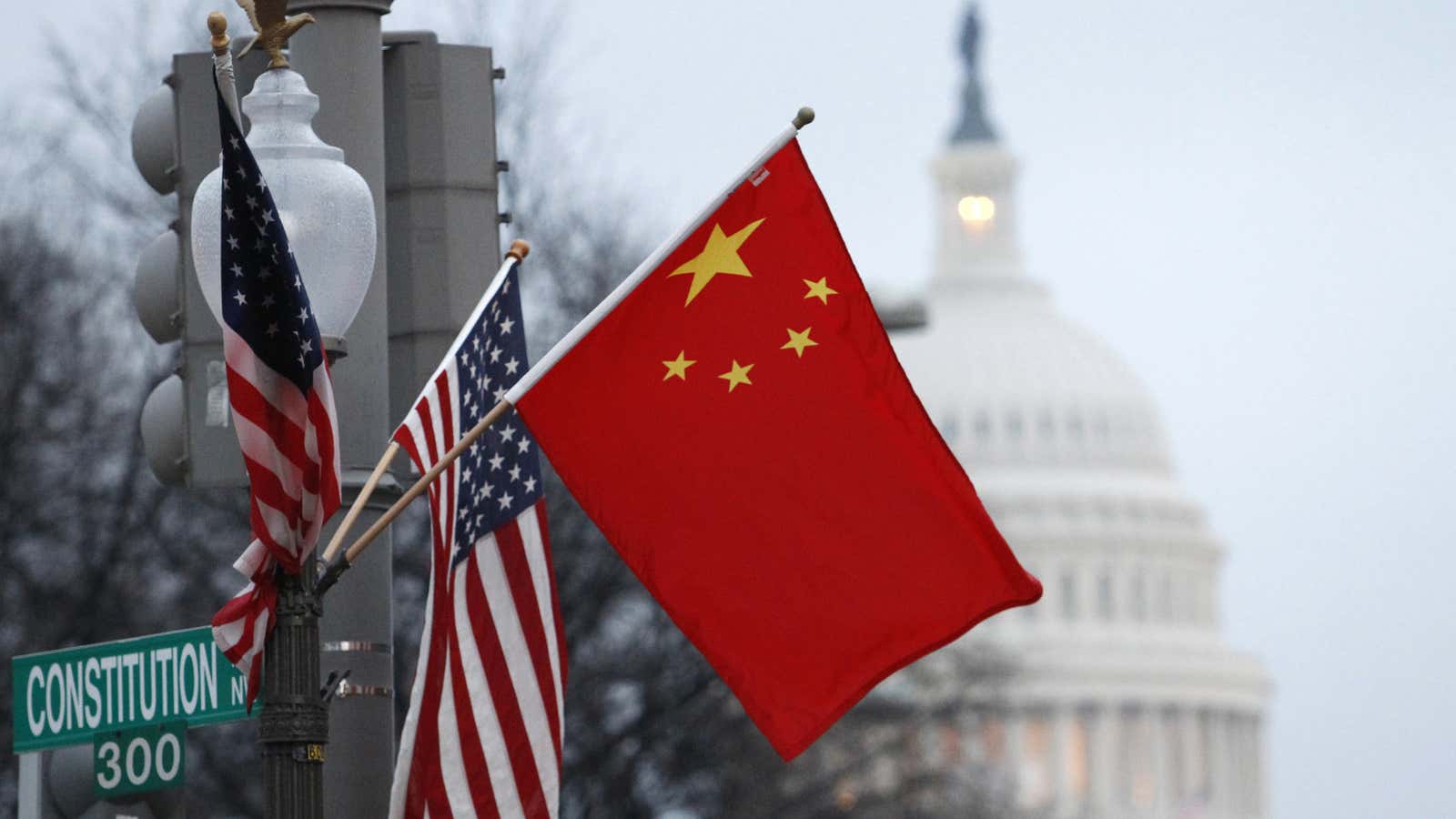Chinese e-commerce giant Alibaba said this week that the US Securities & Exchange Commission has launched a probe into its accounting practices.
Alibaba’s logistics division Cainiao, sales during its most recent Singles’ Day, consolidation practices, and other “related party transactions,” are being investigated, Alibaba’s annual report (pdf, pg. 35) said.
The SEC’s probe doesn’t necessarily mean there any accounting irregularities at Alibaba. But it’s the latest reminder of an unsettling problem that’s haunted Chinese IPOs abroad for a decade.
Starting in the mid 2000s, a wave of Chinese companies flooded public markets overseas in search of capital—especially the US’s highly-liquid ones. Investors eager to buy into the China growth story snapped up shares, only to stand by helplessly as probes were launched into sketchy financial practices, shares plummeted, and these companies delisted.
Quickly foreign investor enthusiasm for the China’s booming economic growth turned into mass skepticism towards Chinese IPOs. Alibaba’s blockbuster IPO on the New York Stock Exchange in September of 2014 renewed some of that faith—but the accounting probe could destroy it.
Here’s some of the more memorable Chinese company tangles with the SEC:
Deloitte bails on a Chinese client
Longtop Financial Technologies was a provider of financial services software for Chinese companies that IPO’d in November of 2007. It was the year’s best-performing Chinese listing, raising $184 million.
After leading six clean audits on Longtop, accountant Deloitte abruptly resigned (paywall) from its role in May 2011. In a letter (paywall), to the SEC, the company said that after reviewing Longtop’s financial claims with local bank branches (as opposed to the bank’s headquarters), certain stated transactions appeared falsified.
When questioned, Jia Xiaogong, Longtop’s chairman, told Deloitte “there were fake revenue [sic] in the past so there were fake cash recorded on the books.”
A SEC investigation led to the stock’s delisting in August 2011. A US jury later found the company’s CFO liable for violating federal securities laws.
The media mogul who wasn’t
Xinhua Finance Media was a media outlet that published economic and market news, and press releases. Originally affiliated with China’s state-media outlet Xinhua, it was led by a charismatic 48-year-old American woman named Loretta Fredy Bush, who arrived in greater China abruptly in the mid-80s with no experience in the region.
The company listed in the US in March of 2007, but its stock price quickly plummeted after Xinhua News Agency terminated its relationship with the company, and the Wall Street Journal reported that Bush had colluded with other executives to benefit from the IPO, without telling investors.
After Xinhua Finance delisted in 2011, the US District Court in Washington D.C. indicted Bush (paywall) and her colleagues for “conspiracy to defraud the U.S. Securities and Exchange Commission, investors and others and to enrich themselves […] through insider trading” She ultimately was sentenced to one one month in prison after signing a plea deal.
Reverse merger shenanigans
Instead of an initial public offering, many Chinese companies went public in the US through a reverse merger, in which they merged with listed shell companies. There’s less regulatory oversight on a company’s financials than in a traditional IPO, which attracted dozens of small Chinese companies. Many of them were troubled.
- The SEC charged the CEO of ChinaCast Education Corporation of secretly funneling $41 million of the $43.8 million it raised in US markets to a subsidiary he co-owned.
- Rino International, a maker of industrial pollution controls, reached a $1 billion valuation before a scathing report from a short-seller led the SEC to delist it.
- ChinaMedia Express reported its cash balance as $57 million when it was just $141,000.
These are just some of the 65 investigations the SEC launched into reverse merger listings between 2010 and 2013.
How the SEC probe of Alibaba unfolds could set the tone for how foreign investors feel about Chinese stocks for years to come. If the company can prove its financials are sound, it will reassure investors about Chinese investments. But if it can’t, expect foreign money for Chinese stocks to dry up again.




